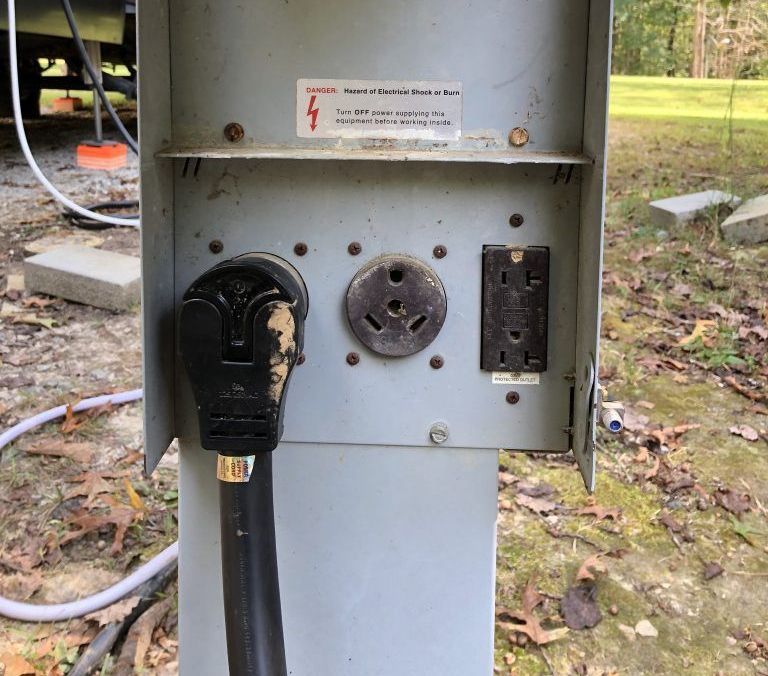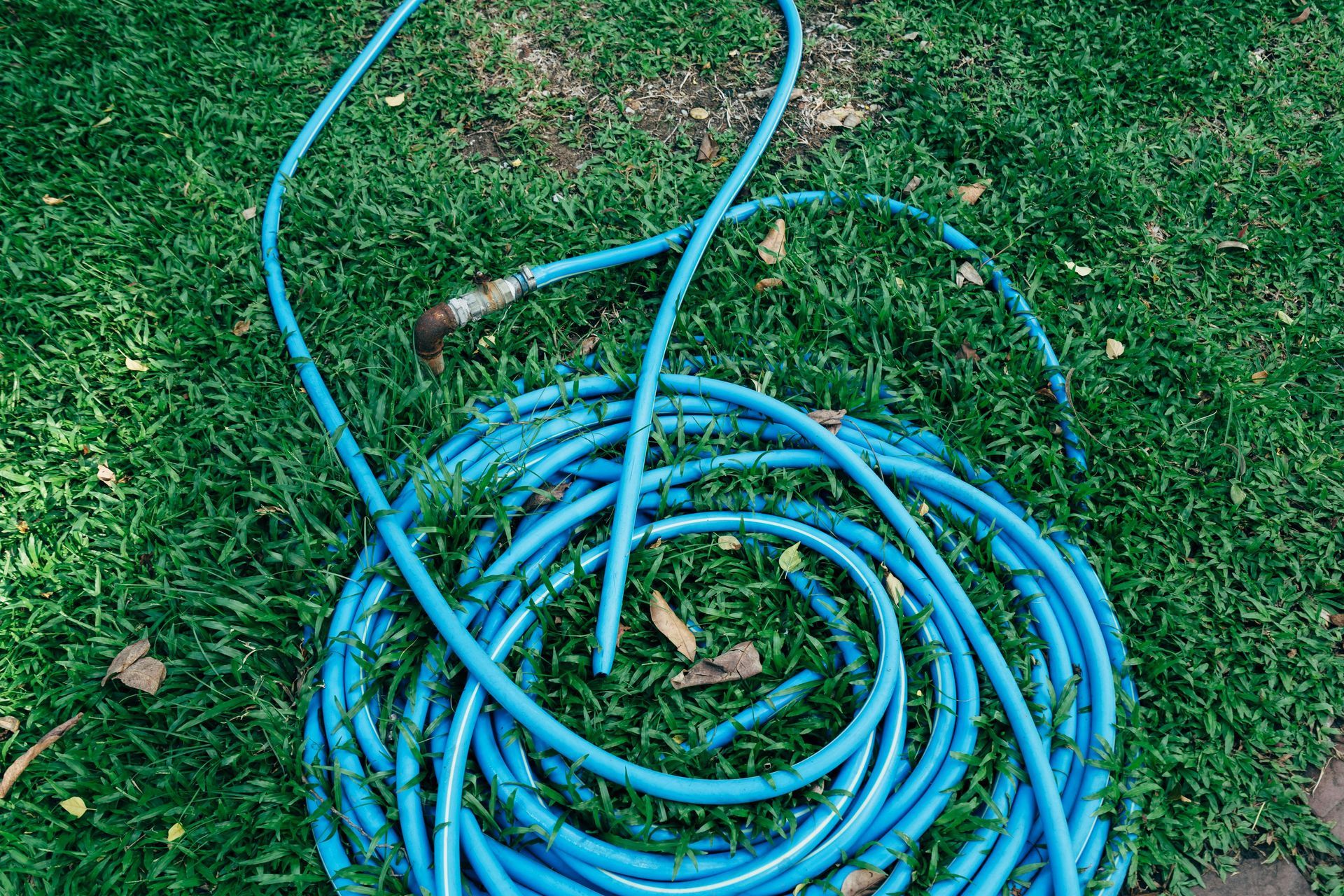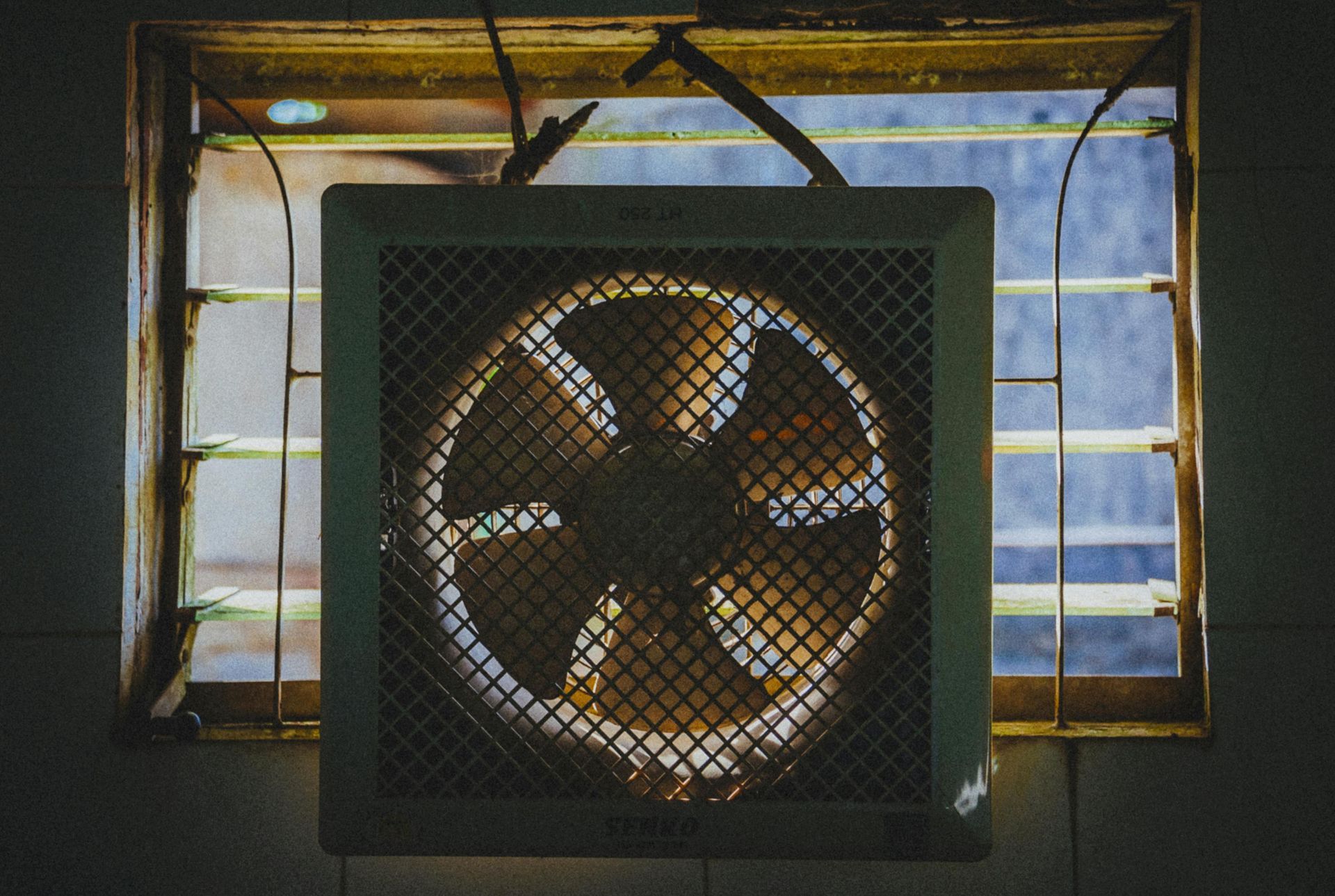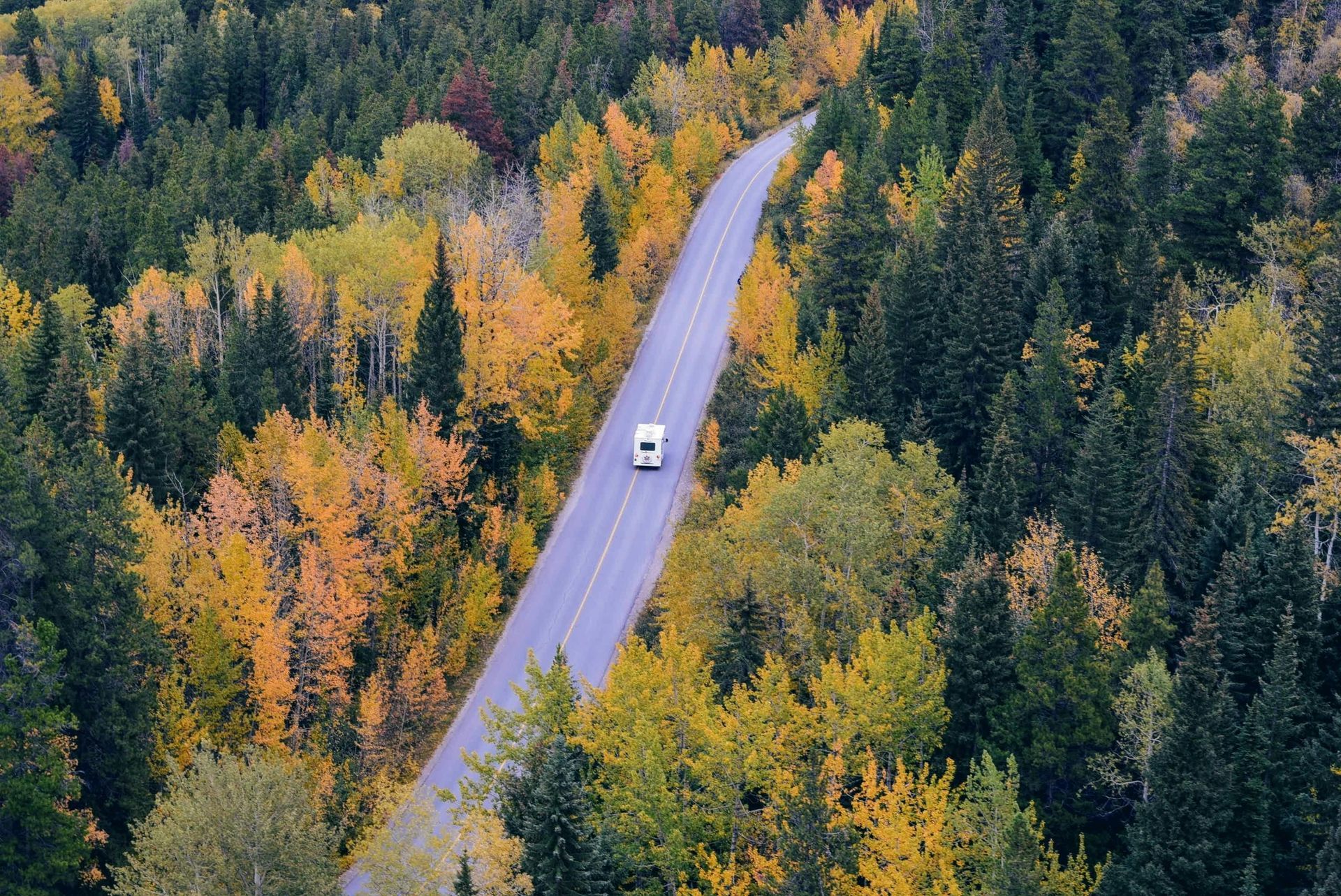Welcome to RV Basics!
Whether you're a seasoned traveler or just starting your journey, understanding the essentials of RVing is key to enjoying the open road. From choosing the right vehicle to mastering the art of campsite setup, we've got you covered. Join us as we explore the exciting world of RV living and help you make the most of your adventures!
Most people think that RVing is difficult or confusing, but truly – using a camper isn’t hard. You need to get setup for towing. With a fifth wheel, you need to pick a good hitch. It’s pretty much hookup and go. With a travel trailer, you usually need a good weight distributing hitch and need to dial it in for your truck/camper combo.
You then have basic systems – electric, water, waste and HVAC.
Powering Your Adventure
Electric comes from either battery(ies) or plugging into “shore power”. Shore power is generally a feature of campgrounds and RV parks. More often then not, it’s plug in and go. That enables your 120v system in the camper and then it functions much like a house. Without shore power, you’re generally limited to 12v power unless you get into inverters and generators and whatnot. 12v power will power your basic systems – water pump, water heater, furnace, etc. Charging and maintaining your battery(ies) is a little more work.

Potable Water
Water comes in 2 forms - either hooking up to “city water” (i.e. a hose to a fresh drinking water source) or by filling your on-board freshwater tank. Again, this is commonly campground/RV park vs. not. When you are connected to city water, you essentially have an unlimited supply. With your water tank, you’re limited to its capacity (usually 30-90 gallons depending on the RV) until you have to fill it again (may or may not be convenient depending on where you are). With the city water connection, it supplies the water pressure - sometimes higher than your RV can support and there you need a water pressure regulator. With your tank, there is a water pump that runs off of the 12v system that supplies the water pressure.
Come winter, you need to winterize your water system.

Dumping the waste
All of the water that you use is your waste water and has to be handle appropriately. I joke about the nicest thing when coming home from trips is that I don’t care where the drain goes anymore. In the RV, all of your waste water goes to tanks. Shower and sinks generally go to gray water tanks; toilets go to black water tanks. Like the fresh water tanks, these have limited capacity. Where you camp decides how you handle the water in these tanks. Many RV parks have sewer connections at each site. If that’s the case, you connect your sewer hose to the sewer outlet(s) on your camper to the sewer connection at the campsite. When the tanks get full (or close to it), you use handles /valves on the side of the camper to empty them. Black first and then gray to clean out the “stuff” in the sewer hoses. Many people run fresh water into the black tanks after dumping a few times to get a better flushing of the system. In fact, there are sprayers with hose attachments that you can get (or it may come with your camper already installed) that spray water directly into the tank. This gives you a better cleaning of the tank than a single flush alone. The thing to remember with the black tank- more water is good because it carries the solids down the hose. After emptying black tanks, most people put a couple of gallons of water back into it, just to keep it all wet and yummy. Some people will say you can keep your gray tanks open to the sewer all of the time, which is true- just make sure you have some left over to flush out your sewer hoses after black.
Now, if you don’t have sewer on your site – things get more interesting. Some campgrounds offer “honey pot” services where they have come around and suck out the contents of your black and gray tanks either for free or for a fee. Or, you can get totes to empty the tanks into the tote and then take it to the dump station (a dedicated dumping spot for sewer – usually at the campground). Or, you can take your whole camper there. Many people can go a whole weekend (or longer) with careful use of water and just hit the dump station on their way out of the park/campground. All told- please don’t listen to those who say you can just dump your gray water on the ground, this is largely illegal in many places and against the rules in most parks.
Heating, Ventilation and Air Conditioning (HVAC)
For HVAC- campers have heating systems that are generally propane furnaces this runs off of 120v and 12v. A cold night on 12v with the fan blowing can wear on a single battery if you’re only on 12v. If you’re on shore power, you may opt to run electric heaters to save on propane. You may or may not pay for metered. The longer you stay at a campground (monthly or seasonally , the more likely this is. For cooling, most RVs have air conditioners. This is generally only available if you have shore power (or a generator). There are 12v fans and whatnot if you’re running off of batteries. The furnace and air conditioner are likely ran off of a simple thermostat, much like your house. The catch to RVs is that they’re generally poor insulated and the windows are giant heat sinks/transfers. RVs can be hard to keep warm in cold climates and occasionally hard to cool in very hot climates. There are RVs that are considered “4 seasons”, but when you’re camping/living in very cold- water lines and tanks want to freeze, propane wants to be a challenge and things are just harder in general.
Your water heater will likely work off of propane and/or electricity. There are little tips and gotchas all over- for instance, never turn a water heater on without it first being full of water; it can short out the heating element (quick if on electric). The fridge is a neat contraption that either works off of 120v electricity or propane and 12v.

Essential RV Maintenance Tips
1
Water is your biggest enemy! Conduct routine checks on your RV's exterior seals, caulking, tires, and undercarriage. Look for signs of wear, rust, water or damage to ensure your RV is in good shape.
2
3
Beginner RVing FAQs
Are you new to RVing and have questions?
This section addresses common inquiries to help you feel confident and prepared for your adventures on the road.
What safety measures should I take while RVing?
Always ensure your RV is in good condition before hitting the road. Check tire pressure, brakes, and lights. Familiarize yourself with emergency procedures and keep a first aid kit handy.How do I choose the right campsite?
Look for campgrounds that suit your RV size and amenities. Consider factors like accessibility, available facilities, and nearby attractions to enhance your experience.What should I pack for my RV trip?
Pack essentials like cooking supplies, bedding, clothing, and personal items. Don’t forget outdoor gear and entertainment options for downtime at the campsite.Read: Newbie - First Trip EssentialsHow do I maintain my RV?
Regular maintenance is key. Check fluid levels, clean the exterior, and inspect the roof for leaks. Schedule professional inspections to keep your RV in top shape.What are the best travel routes for RVs?
Research scenic byways and RV-friendly routes. Use apps that provide information on road conditions, height restrictions, and available services along the way.
Did you know you can hire someone to teach you how to drive your RV?
At Learn to RV, we recommend experienced instructors from RV Driving School who will help you feel comfortable behind the wheel.
This is especially beneficial for couples traveling together—both you and your partner should confidently know the ropes of driving your home on wheels. This is an essential part of RV travel.
With these hands-on lessons, you’ll not only gain skills but also enjoy the journey ahead!
Campsite Setup
Setting up your campsite can be a breeze with the right guidance! At Learn to RV, we believe that a successful camping experience starts with the perfect setup. From choosing the ideal spot to arranging your gear efficiently, we’ve got you covered. Curious about the three essential steps that will transform your campsite into a cozy retreat? Dive into our latest blog post on Campsite Setup in 3 Easy Steps and get ready for your best outdoor adventure yet!
Real Stories, Real Journeys
"Thanks to Learn to RV, I finally feel confident hitting the road with my family! The training was invaluable, and I learned so much about maintaining our RV and choosing the right spots to camp."

Ready to Hit the Road?
Whether you're eager to learn more about RV options or need guidance on your first purchase, we're here to help. Reach out today for personalized advice or to schedule a consultation with our experts.
RV Education and Resources
Navigating the world of RV ownership can be overwhelming, but with the right education and resources, you can hit the road with confidence. From understanding RV inspections to finding a reliable technician while traveling, we provide essential guidance for new RV owners.

Understanding RV Inspections
Finding a Technician on the Road
Essential RV Maintenance Tips
Common RVing Questions
Get Started with RV Education
Want to learn more? Find ways to expand your knowledge in specific or even broad areas?
Getting Started: Real Advice for RV Life
New to RVing or just need a refresher? These blogs are packed with straightforward, beginner-friendly information that cover the essentials - from towing and tank dumping to understanding your rig’s systems. Whether you're prepping for your first trip or looking to feel more confident on the road, start here.


